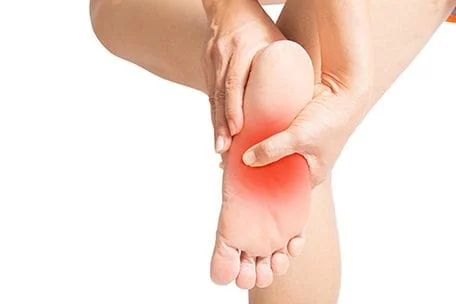
What is Peripheral Neuropathy?
Peripheral neuropathy is a condition that results in damage to peripheral nerves that run throughout the body, including the arms, legs, and feet. Damage to the nerves can occur due to direct trauma, genetics, or usage of certain medications.
But, the most common cause of peripheral neuropathy in the US is diabetes. Studies show that 60% to 70% of patients with diabetes in the United States also experience peripheral neuropathy to varying degrees.
This is known as diabetic peripheral neuropathy and occurs as a result of high levels of blood sugar. Diabetic peripheral neuropathy affects three different nerves:
- sensory nerves
- autonomic nerves
- motor nerves
This results in impairment in signaling between the brain and body tissues, leading to poor circulation, a decrease in pain sensations, and a lower rate of healing of wounds.
What Are the Causes of Peripheral Neuropathy?
As previously mentioned, the major cause of peripheral neuropathy is diabetes. According to the American Diabetes Association, peripheral neuropathy is the most common form of nerve condition that affects approximately 70% of patients with diabetes. Nerves in the hands and arms, as well as the legs and feet, are primarily affected—most patients report experiencing it in both feet at once.
Other causes of peripheral neuropathy include:
- accidents and other physical injuries
- cardiovascular diseases like peripheral artery disease (PAD)
- certain medications, such as chemotherapy drugs
- autoimmune disorders, including Guillain-Barré syndrome
- vitamin imbalances
- certain cancers
- viral infections
- alcoholism
- kidney disorders
- hormonal imbalances
- neurological disorders such as fibromyalgia
- age
Symptoms of Peripheral Neuropathy in Your Feet
Patients with peripheral neuropathy may experience one or more of the following symptoms:
- muscle weakness
- cramps
- loss of reflexes
- inability to feel pain, pressure, and temperature
- numbness or tingling in feet and toes
- severe pain, including:
- burning
- pinching
- pins and needles
- sensitive to touch
- sharp pain
- Charcot foot and other deformities
- cracked skin
- extra dryness
- slow healing sores and foot ulcers
What to Expect During a Peripheral Neuropathy Foot Treatment
Diagnosis of peripheral neuropathy involves a trained healthcare provider such as a podiatric physician or an endocrinologist. It involves:
- comprehensive medical history
- lifestyle and dietary evaluation
- foot exam—this is an essential part of the process and checks the skin, bone health and for any signs of numbness using a monofilament or tuning fork
- series of neurological exams, such as an electromyography and nerve conduction velocity (NCV) to identify the extent of nerve damage
- MRIs and CT scans
- nerve biopsy
- blood tests
- genetic tests
Prevention of the symptoms of peripheral neuropathy is the ideal way to manage this condition, which currently has no known cure. Treatment of peripheral neuropathy begins at home. Your podiatrist will recommend and show you how to effectively check your feet daily.
Decreased sensation to your feet and legs puts you at risk of developing infections from cuts and bruises, mainly because you cannot feel the trauma when it occurs. Medications and physical therapy may also be prescribed as part of the treatment process, depending on your symptoms. Decreasing the rate of the progression of peripheral neuropathy can improve a patient's quality of life and maintain proper foot health.
